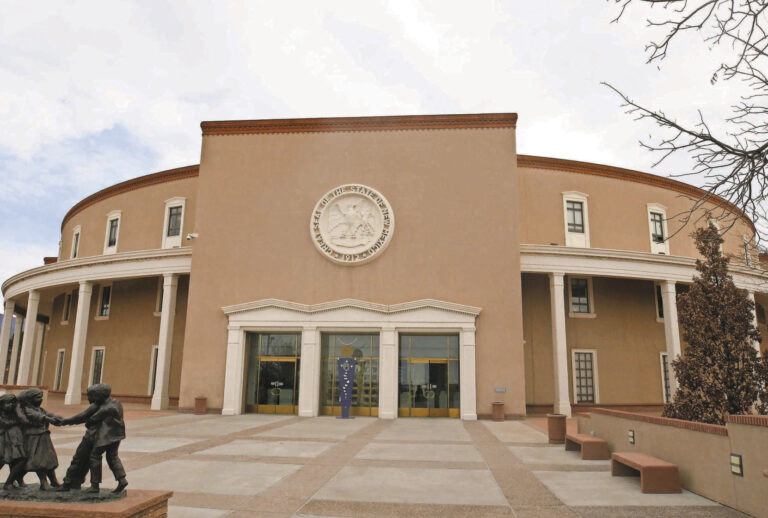Healthy communities are rooted in meaningful access to affordable civil legal services

By: C. Shannon Bacon and Erin B. O’Connell
Three out of four low-income households in New Mexico struggle with legal issues impacting basic needs like housing, financial stability, access to social and medical benefits. New Mexico’s civil legal service providers handle thousands of cases every year, but a lack of capacity caused them to turn away more than half of the people seeking help last year.
The New Mexico Commission on Access to Justice works with civil legal service providers to ensure equal access to the justice system for the most vulnerable in our communities. We need your help. As the Legislature convenes for the 2025 session, we write to highlight the help needed to make New Mexico more just.
Unlike in criminal cases, there is no right to an attorney in a civil case. This creates substantial barriers and worse outcomes for New Mexicans who struggle to make ends meet and cannot afford an attorney. Without adequate legal assistance, veterans get kicked out of their homes, seniors can’t access their medical benefits, and young adults fall victim to unfair lending practices.
However, when people have access to civil legal services, it leads to better outcomes.
Civil legal service providers help low-income New Mexicans with free legal advice and services like maintaining affordable housing, protection from consumer fraud, and for domestic violence victims, helping to secure safety.
Solutions need to be funded. Legal services providers do their best to meet the skyrocketing need, but don’t have stable resources and funding. People needing civil legal services are already in crisis, so it is heartbreaking when providers must turn them away because of unpredictable funding. Nonprofit legal service providers cannot build capacity and maintain their workforce without consistent, reliable funding. With recurring funding, people have more access to help.
To better support and help fund legal aid services in New Mexico, the Legislature enacted laws creating the Civil Legal Services Fund and the Civil Legal Services Commission. The fund is partially financed by civil filing fees. The CLS Commission plays a key role in funding New Mexico’s legal service nonprofits, which provide essential legal services in our community like Pegasus Legal Services for Children, New Mexico Legal Aid, the Senior Citizens Law Office, and the New Mexico Center on Law and Poverty.
Stabilizing legislative funding will help. This year, the Commission is asking for an $860,000 increase in recurring appropriations, making the total budget for the Fund $8.1 million in fiscal year 2026. Recurring and predictable funding ensures the stability providers need to build and sustain capacity to provide civil legal assistance. As members of the judiciary and the Access to Justice Commission, we see the positive impact on families and the direct results achieved by the civil legal service providers in our state. The importance of this funding is crucial to every community, large or small, urban or rural, and cannot be overstated.
Legislators have historically shown strong support for these programs by filling funding gaps with junior budget money and special appropriations. While these one-time funds have been very important for avoiding shortfalls in the past, they are not stable sources of funding and create challenges for planning and delivering services year-to-year. To ensure access to justice, the civil legal services system needs predictable funding to build capacity.
Stabilizing the recurring, general fund portion of the CLS program budget ensures that the people who ask for help will receive it.
C. Shannon Bacon is a New Mexico Supreme Court Justice and Erin B. O’Connell is a District Judge and the Chair of the New Mexico Commission on Access to Justice.



